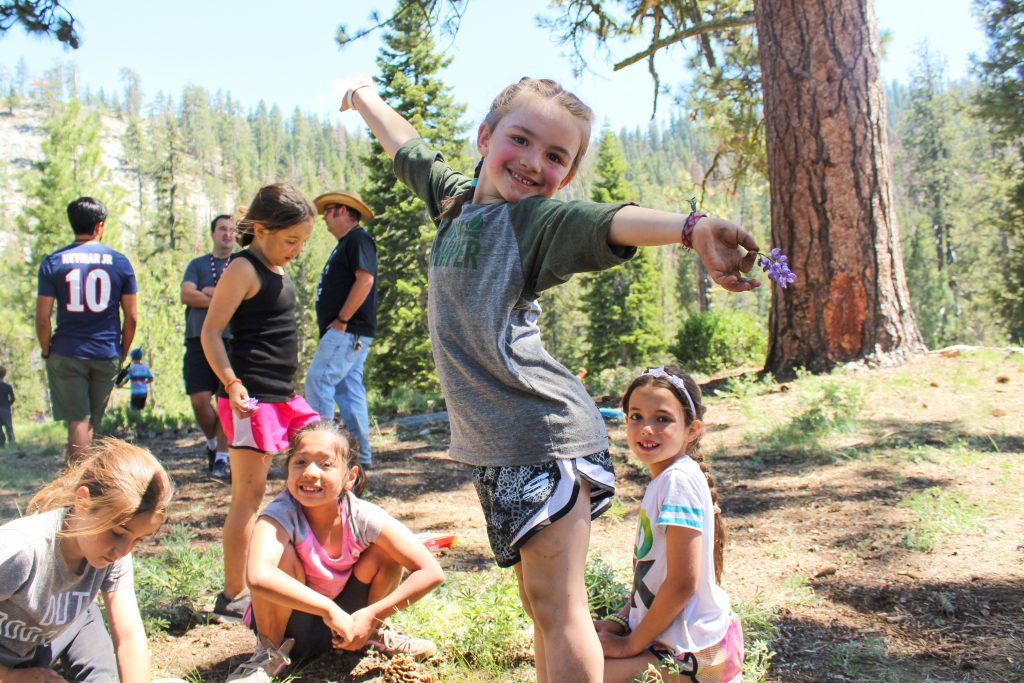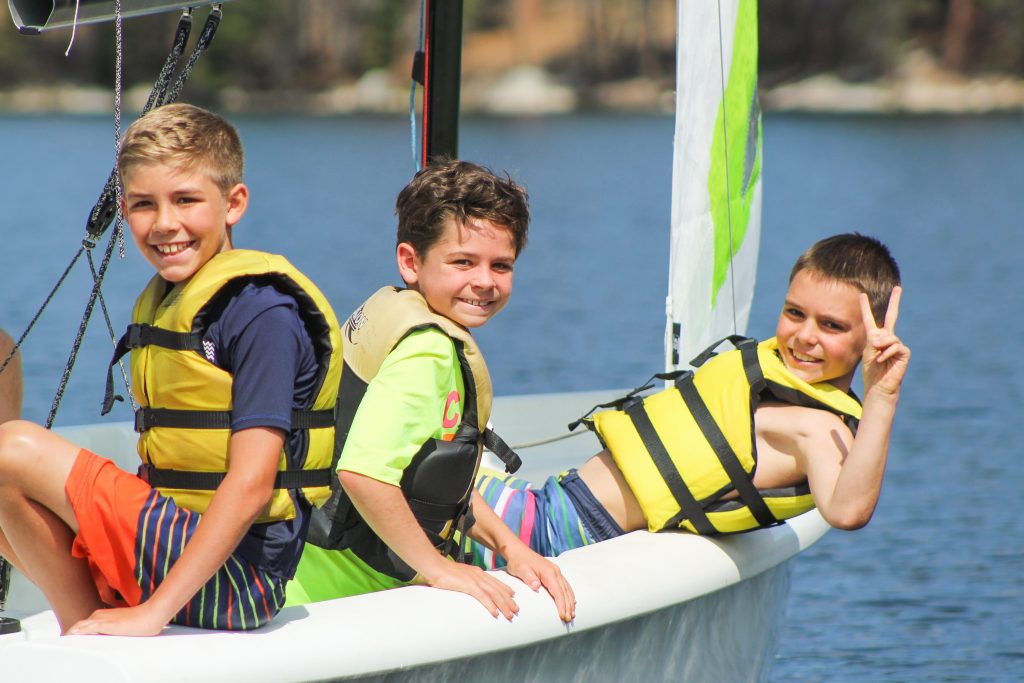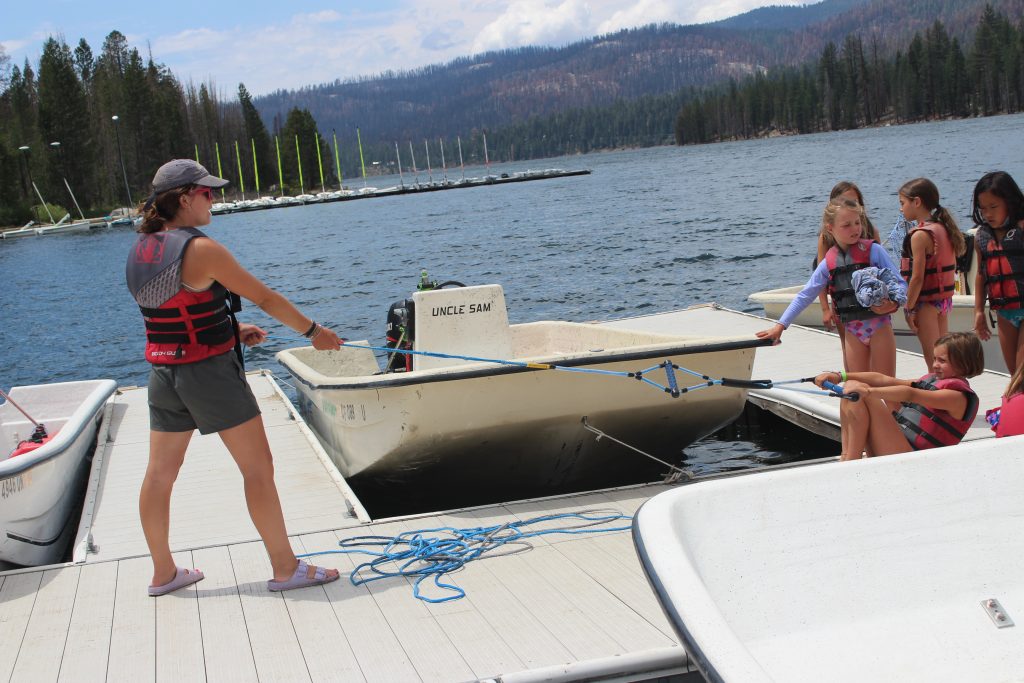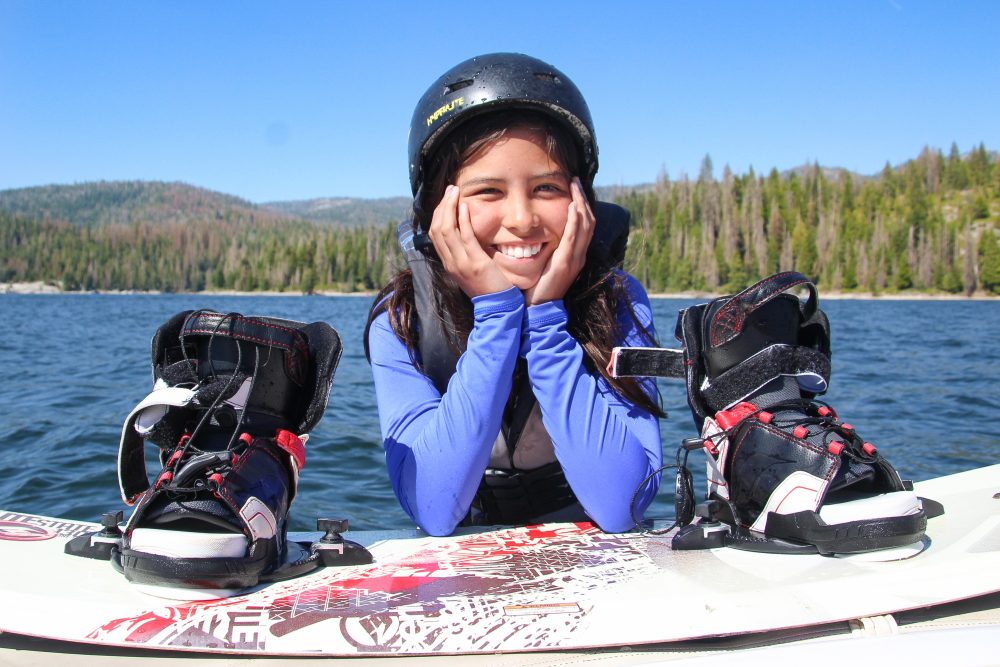What Is the Best Age For Camp?

by Audrey “Sunshine” Monke
You probably want a number here. If you’re only going to read these first two sentences, then I’ll pick the age of nine.
But my real answer is a bit more complex. When to start sending your child to sleep-away camp is a decision that depends on you, your parenting style, and your child’s temperament. Many kids have extremely fun and successful camp experiences as young as six years old, but that’s too young for most kids. And, for some parents, the thought of their child EVER going to camp (without them) is unimaginable. If you’re one of those parents, please read Five Reasons Great Parents Send Their Kids to Camp. Sometimes, “he’s not ready for camp” actually means you’re not ready. Realizing that your child can be okay without you is sometimes hard on parents, and it’s a big step to let them have the independent experience of summer camp.
These are the guidelines I recommend to parents who are ready to send their child to camp but aren’t sure what age is best.
If your child is 5 or under, that’s too young for overnight camp alone. Go to a family camp together, or try an American Camp Association accredited day camp program in your area, which is a great way to get the feel for what camp is all about!

If your child is 6-8 years old:
- Your child is a fairly independent kid (not clingy to you) and can take a shower on his/her own. If your child happily goes to school and is fine at day camps and other activities without you constantly by his/her side, then he/she’s probably ready for camp. Parents often worry about the logistical stuff with young kids. “Will someone make sure he eats? Puts on sunscreen? What if he wets the bed?” Know that, at a well-run, accredited camp program, counselors are trained to take care of young children well. Counselors will make sure your camper gets enough water, eats properly, and puts on sunscreen. Most camps work with families of bed wetters to help them feel comfortable coming to camp. You just need to make a plan on how to manage the bed wetting with the staff at your child’s camp (using a pull-up and keeping small plastic trash bags in the bottom of the sleeping bag for the counselor to throw away privately works well).
- Your child is ASKING to go. This usually occurs with younger siblings who visit or hear about camp from older brothers and sisters. They’ve been watching and hearing about the fun for a few years and they want “in.” I’ve often been at camp events where older kids are coming to hear about camp, and the younger siblings in attendance end up begging their parents to let them go to camp, too.
- You, as the parent, are confident in your child’s ability to be away from you. And you are able to express that confidence to your child. And YOU can handle the separation.
For young kids, focus on if your child is ready. This is not the age to force camp upon a hesitant child.

Once your child is 9-10 years old, I have three different guidelines, depending on your child and you.
- If your 9-10 year old is excited to go to camp, go for it! Find a camp and sign him/her up!
- If your 9-10 year old is hesitant about going to camp:
- Talk with other families whose kids go to camp to expose him/her to the idea. Hearing how much other kids like camp might encourage him/her to want to go.
- Attend camp information sessions and browse websites. Watch camp videos to show your child the fun that happens at camp. If exposing your child to the idea of camp gets him/her excited, then forge ahead with signing up and sending your child to camp. If he/she gets “cold feet,” use these discussion strategies to let him/her know why camp will be good for him/her.
- If your 9-10 year old child is STILL hesitant, you have two choices:
The Hard Choice (Michael Thompson, PhD. would say the better one):
Tell your child, “I know you’re ready for this experience and it will be a good experience for you that I don’t want you to miss out on. I know you’re nervous, but this is something that is important for you to do.” Read the book Homesick and Happy as your homework before you broach the subject with your child. Explain all the benefits of camp and how you think camp will be great for him/her and how it is an important step in his/her growth and development. Let your child know that you, as the parent, think it’s an important experience that you don’t want him/her to miss out on. And then, sign up for a camp that is a good fit for your child and offers activities he/she is interested in! Making this choice requires being able to stand your ground and not give in to whining. Better to not dwell on the topic until it gets closer to summer. Sign up but don’t talk about it too much, too far in advance if your child is especially anxious about it.
The Easier Choice (for now):
Give your child a one year “pass,” but follow through! “Okay, no camp this summer, but next year you’re for sure going to a camp we choose together that is a good fit for you. I know you’re ready, and it will be a great experience for you that I don’t want you to miss out on. I know you’re nervous, but this is something that is important for you to do.” Read the book Homesick and Happy as your homework over the year! Follow through and make going to camp next summer non-optional. Talk with your friends and research an accredited camp program that’s a good fit for your child. Attend “meet and greet” events or camp tour days to meet other camp families.
Know that kids who are hesitant about camp at 9 or 10 are likely to still be hesitant at 13, and possibly hesitant at 18 about going to college. For kids who are nervous about being away from home and parents who need to figure out how to work through those feelings, a week or two at camp is an easy way to start! It’s actually easier to start camp at 9 or 10 and work through those difficult homesick emotions without also contending with puberty. So… knowing that it’s great to get your child some independent experience early, forge ahead confidently (or at least pretend you’re confident!).

If your child is 11:
It’s REALLY time. See the above steps but don’t do the easier choice. Remember when you were 11? Your best memories were not hanging out with your parents. Time to get some fun, independent experience!
If your child is 12 or older and has never been away to camp, please let them go! Seriously. I’ve been at camp fairs, where a mother with a child taller than she is tells me, in front of her child, “He’s WAY too young to be away from me for two weeks.” I look at the young person standing next to her and want to say, “He’s not too young. You just don’t want him to be away from you.” But, I can’t say that unless it’s a friend who I can be really frank with. So, I just feel badly for the kid, who longingly looks at camp pictures but knows that his mom won’t ever let him go.
Your older child will likely not be the only first-year camper his/her age. There will be fewer new kids at camp in that age group, but camp kids are welcoming, so don’t worry. Let your child be part of the process of picking a camp, but please send them to camp! I’ve met many families who waited until their child was 12 or 13 years old to start camp, only to be disappointed that they had so few summers to enjoy at camp before they were too old. Plus, the kids who tend to have the most extreme homesickness are the older ones who’ve never been away. But, if your child is one who may experience that extreme homesickness, isn’t it much better that it happen during a 2-3 week summer program than when they’re a freshman in college? Too many kids are not making it in college because they don’t have the coping skills to be away from home. Give your child the gift of early independence to help them develop the skills they need to thrive as a young adult!
So now you see why I couldn’t give a short answer. I hope this helps you make the decision of when is the best age to send your child to camp!

